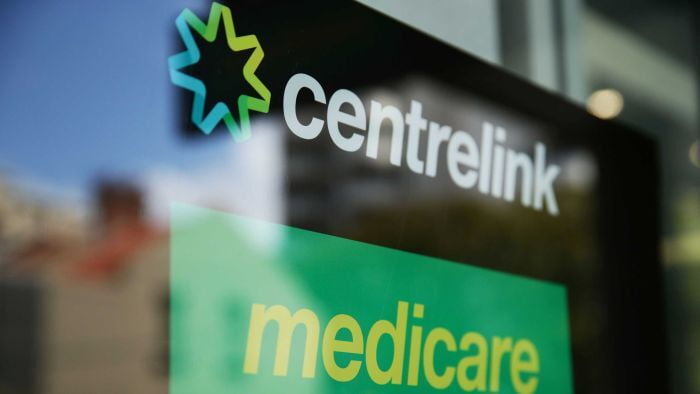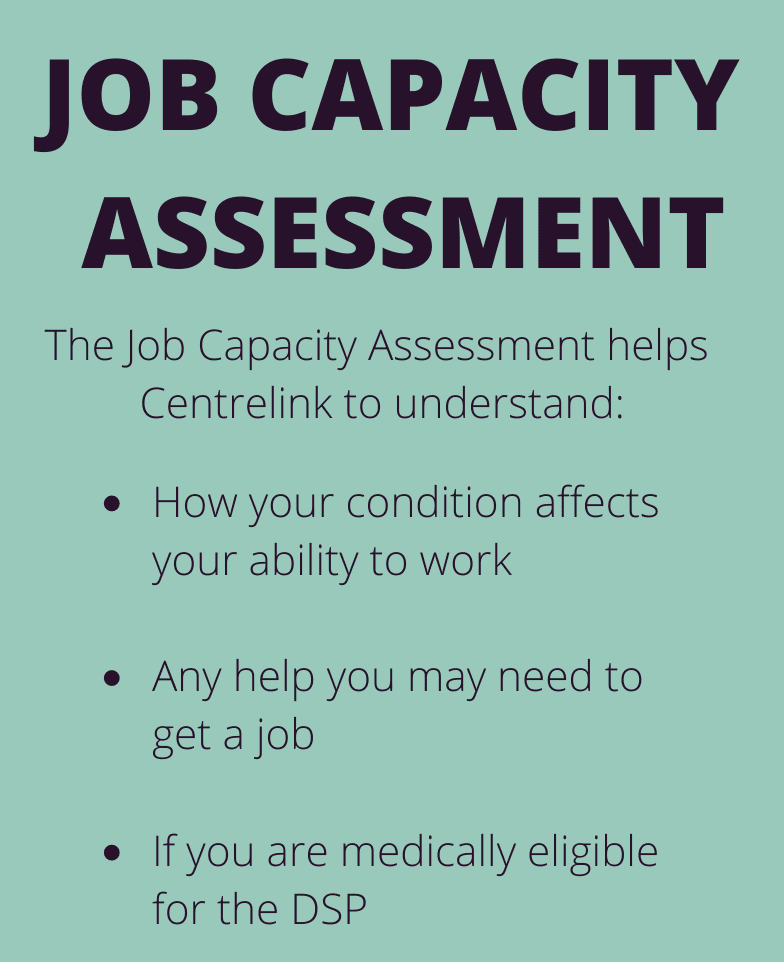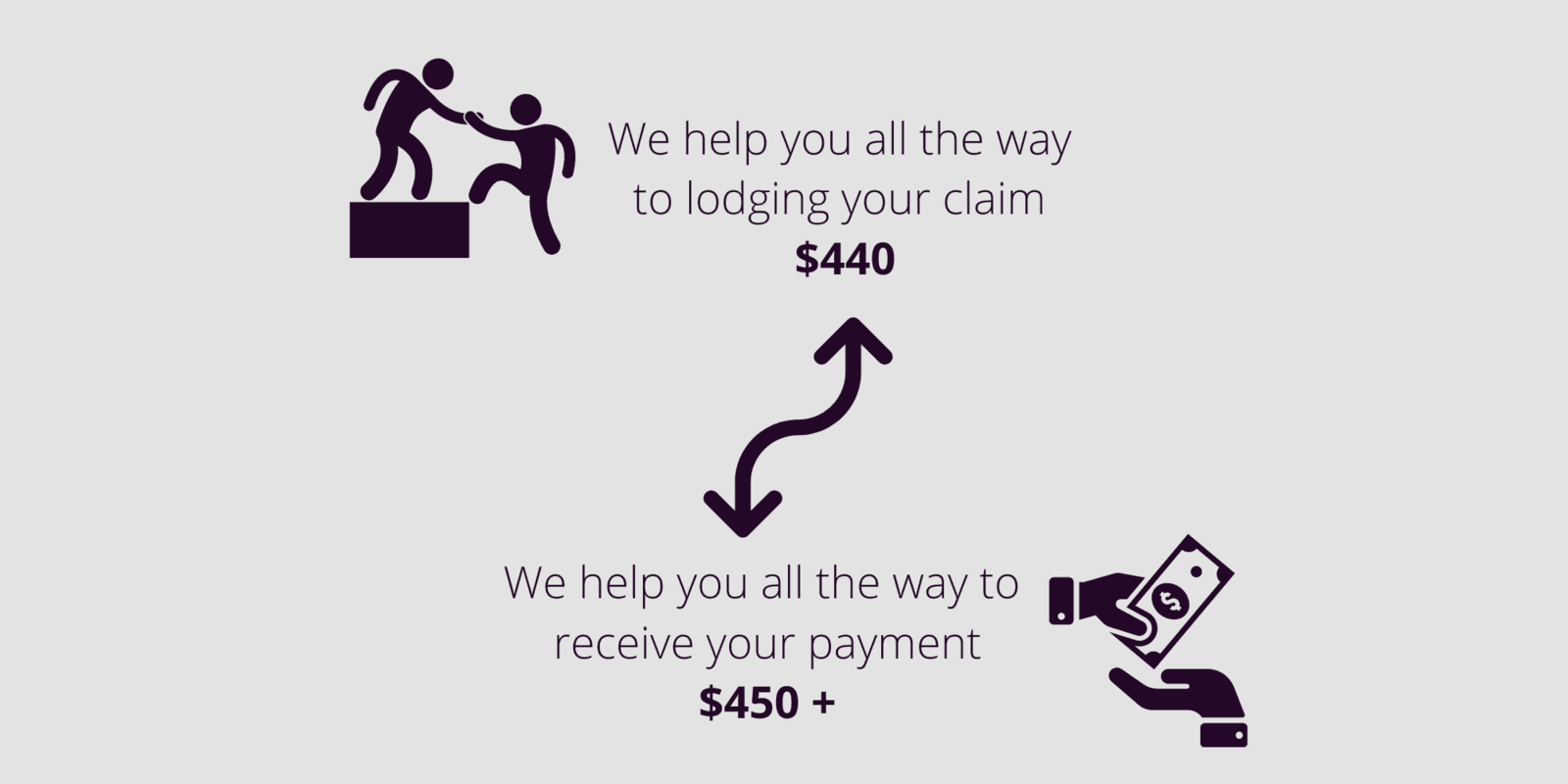Struggling to access the Disability Support Pension?
For those who are struggling to access the pension, we've decided to share our in-depth explainer video that discusses the criteria involved to meet the eligibility requirements for the Disability Support Pension.
We're certain you'll find this information page helpful with assisting you in the application process.
HOW DO CENTRELINK ASSESS YOUR ELIGIBILITY?
There are many Centrelink payment types, and generally, there is an eligibility criteria for the payment you may be eligible for. However, Centrelink also assesses whether you have adequate funds to support yourself. This can be in a form savings or income you regularly receive. Most of the payment types attract this type of assessment, and this is called “means testing”.
Disability Support Pension Eligibility Criteria
Centrelink use key eligibility points for Disability Support Pension applications to be successful. For an individual to succeed in their application for the pension, they must meet the non-medical and medical rules.
Non-medical rules
To meet the non-medical rules, Centrelink will review your financial situation through means testing, your residency and your age.
Medical rules
To meet the medical rules, Centrelink will assess a variety of criteria. Find out more below.
Non-medical rules
Firstly, you must meet the non-medical criteria. This involves:
Means Testing
Do you have the means to support yourself? This is the question Centrelink asks to assess your eligibility. Many people think they have too much money, so they never apply. In this section, you will learn how much money you can have for each type of payment.
There are three broad types of payments and means testing is different for each.
An Allowance: This type is generally not means tested.
A Pension: This type has a more generous threshold for how much assets and income one can have before have a reduced payment or ineligible.
A Payment: This type has a less generous threshold of how much assets and income one can have before having a reduced payment or ineligible.
Which Income is not Assessable?
Broadly speaking, income you receive is assessable except:
- Centrelink payments
- Commonwealth Rental Subsidy Scheme
- Child Support (however may still affect Family Tax Benefits)
Which Asset is not Assessable?
Broadly speaking, your assets are assessable as financial assets except:
- Your superannuation account (if you are under 65) and have not moved it to an income stream,
- Your Home.
- NDIS funding
- Special Disability Trust (special rules apply)
- Aids for people with disability
KEY ELIGIBILITY POINTS FOR THE DISABILITY SUPPORT PENSION
- Fully Diagnosed, Fully Treated and Fully Stabilised
- Your condition is likely to result in you being unable to work more than 15 hours a week in the next 2 years.
- You meet the required impairment rating.
- Participate in a "Program of Support"
- Meet the Asset and Income tests
- Meet the Residency test
If you have an illness or disability, and you meet the means testing eligibility as outlined, a Job Capacity Assessment is processed.
Centrelink will also measure the level of impairment to determine if you are eligible for the Disability Support Pension. The currents rules and tables can be found here.
It is very possible for symptoms to vary on different days or they may reoccur and disappear. For this reason, if you are still struggling to understand whether you may be eligible for a DSP claim, get in touch with us on 1300 12 44 99.
Which Income is not Assessable?
Broadly speaking, income you receive is assessable except:
Centrelink payments
Commonwealth Rental Subsidy Scheme
Child Support (however may still affect Family Tax Benefits)
Which Asset is not Assessable?
Broadly speaking, your assets are assessable as financial assets except:
- Your superannuation account (if you are under 65) and have not moved it to an income stream,
- Your Home.
- NDIS funding
- Special Disability Trust (special rules apply)
- Aids for people with disability
DISABILITY SUPPORT PENSION CRITERIA
FULLY DIAGNOSED
- A qualified medical professional has examined you
You have medical evidence for your condition
FULLY TREATED
- You have received treatment or rehabilitation
- Treatment will continue or you have a medical plan for the next 2 years
To decide if your condition is fully managed/treated, we assess if:
FULLY STABILISED
To decide if your condition is fully stabilised, we assess if:
- Treatment will help you work 15 hours or more a week in the next 2 years
OR
- There are medical or other reasons why you cannot receive treatment
Before you apply, we recommend you check other eligibility criteria, such as residency requirements and points in more detail.
WHAT IF I HAVE BEEN RECENTLY DIAGNOSED?
Example:
Jane has sustained an Acquired Brain Injury. She underwent lifesaving surgery and she is now receiving rehabilitation. Her doctors are hopeful she will recover in the next two years. Upon investigation of why she fell, it was found that she has Multiple Sclerosis which is probably what affected her balance. The neurologist is making further investigations on her treatment plan.
In this scenario, Jane may not be eligible because she has not been fully treated or stabilised, and she may improve within the next two years.
Jane has sustained an Acquired Brain Injury. She underwent lifesaving surgery and she is now receiving rehabilitation. Her doctors are hopeful she will recover in the next two years. Upon investigation of why she fell, it was found that she has Multiple Sclerosis which is probably what affected her balance. The neurologist is making further investigations on her treatment plan.
In this scenario, Jane may not be eligible because she has not been fully treated or stabilised, and she may improve within the next two years.
DISCLAIMER: Newly diagnosed conditions may not be fully treated or stabilised (yet) and therefore this may preclude the person from applying for the Disability Support Pension.
WHAT ARE THE PAYMENT RATES FOR THE DISABILITY SUPPORT PENSION?
The rate of the payable pension depend on several factors that include whether or not:
- 1, you have a partner (and living with them)
- 2. you own a home
- 3. you have children
- 4. your assets and income
- 5. whether you are under 21 years of age
- The maximum $944.30 for a SINGLE and $711.80 for each member of a COUPLE ($1,423.60 combined)
Depending on your income and assets, and whether you are working part time, you may get a reduced rate of pension.
To get detailed tables and up to date information, please find more details here
WHILE YOU ARE WAITING FOR APPROVAL FOR THE DSP
It may take anywhere between 6 to 12 months for you to get a response to your application for a disability support pension.
In the meantime, it is highly likely that you will be put on to JobSeeker Centrelink payment – provided that you meet the income and assets test (click here) and provided that you are:
The maximum rate for a single individual with no children is $565.70 per fortnight (excluding the $150 Coronavirus Supplement. Partnered individuals can expect to receive $510.80 per fortnight.
You can generally expect to earn up to $300 per fortnight before Centrelink starts to reduce your entitlement.
Some people who are put on JobSeeker pending an application for a Disability Support may be required to access Disability Employment Services.






